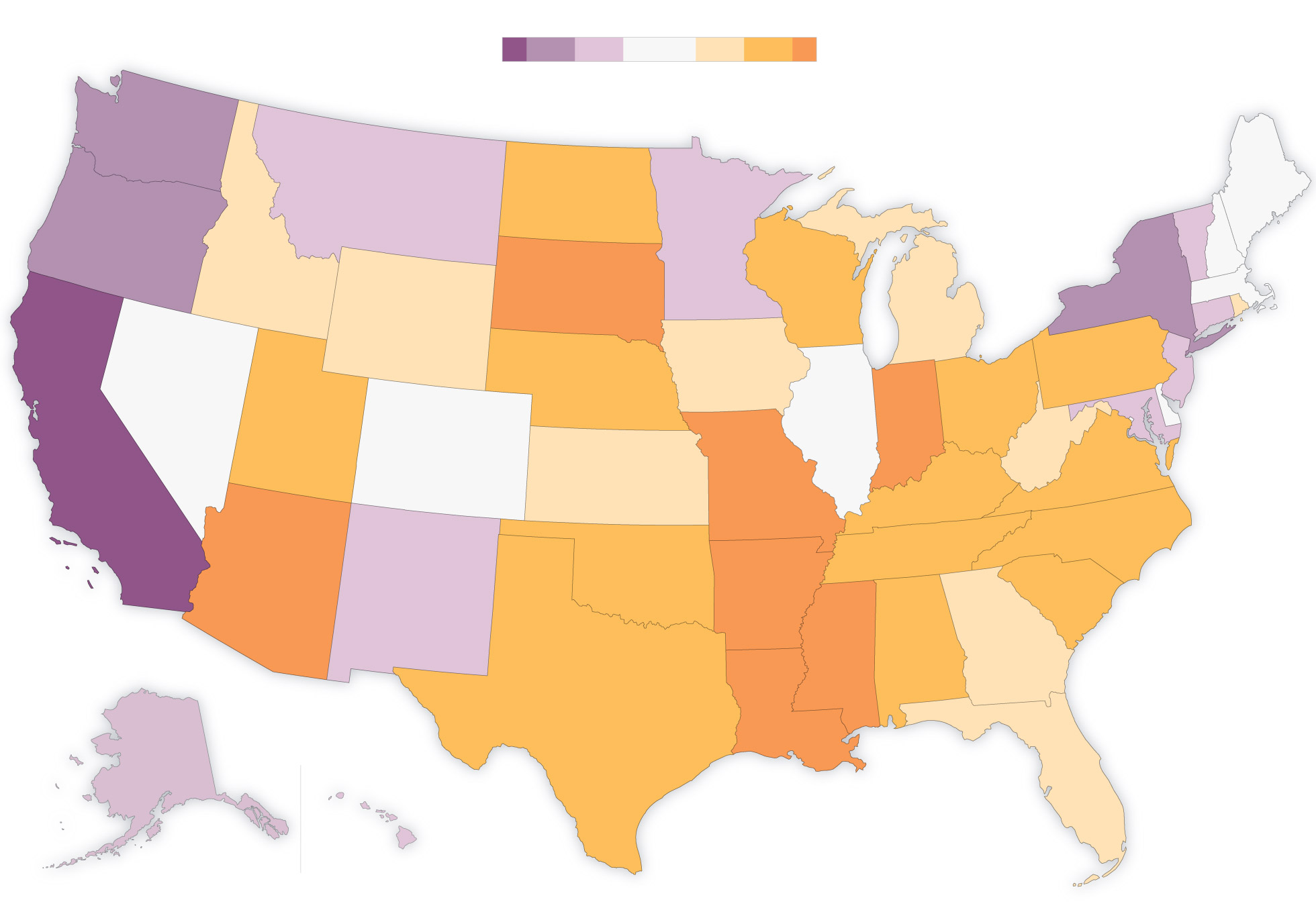Abortion Laws State by State

States with Restrictive Abortion Laws
Some states have passed laws that place significant restrictions on access to abortion. These restrictions can include waiting periods, mandatory counseling, and restrictions on insurance coverage. In some cases, these laws can effectively make abortion inaccessible for many women.
Texas
One of the most restrictive abortion laws in the country is Texas' HB2 law. This law requires abortion clinics to meet the same standards as ambulatory surgical centers, and requires doctors who perform abortions to have admitting privileges at a nearby hospital. Critics argue that these restrictions have led to the closure of many clinics, making it difficult for women in rural areas to access abortion services.
Mississippi
Mississippi has only one abortion clinic in the entire state, and has passed a number of laws that restrict access to abortion. For example, Mississippi law requires women to have counseling and a 24-hour waiting period before having an abortion. Additionally, the state has passed a law that bans abortions after 15 weeks, with only limited exceptions.
States with Permissive Abortion Laws
Other states have passed laws that make it easier for women to access abortion services. These laws can include provisions that protect a woman's right to choose, and can make it easier for women to obtain the care they need.
California
California has some of the most permissive abortion laws in the country. The state allows nurse practitioners, physician assistants, and certified nurse midwives to perform abortions, which helps to increase access to care. Additionally, California law protects a woman's right to choose, and does not place significant restrictions on abortion.
Colorado
Colorado is another state with permissive abortion laws. The state allows women to obtain abortions up to 22 weeks, and does not require waiting periods or mandatory counseling. Additionally, Colorado law allows nurse practitioners and physician assistants to provide abortion care.
Pros and Cons of Abortion Laws State by State
Pros
- States can pass laws that reflect the values of their constituents
- Permissive laws can increase access to care
- Restrictive laws can protect the health and safety of women
Cons
- Restrictive laws can limit a woman's ability to choose
- Restrictive laws can make it difficult for women to access care
- Permissive laws can lead to controversy and political divisions
FAQ
Q: Can I get an abortion in any state?
A: While abortion is legal nationwide, individual states have passed laws that can make it difficult for women to access care. Some states have only one abortion clinic, while others have passed laws that place significant restrictions on access to care.
Q: What is a waiting period?
A: A waiting period is a period of time that a woman must wait between receiving counseling and having an abortion. Waiting periods can range from 24 hours to several days, and are designed to give a woman time to consider her decision.
Q: What is a permissive abortion law?
A: A permissive abortion law is a law that makes it easier for women to access abortion services. These laws can include provisions that protect a woman's right to choose, and can make it easier for women to obtain the care they need.
Q: What is a restrictive abortion law?
A: A restrictive abortion law is a law that places significant restrictions on access to abortion. These restrictions can include waiting periods, mandatory counseling, and restrictions on insurance coverage. In some cases, these laws can effectively make abortion inaccessible for many women.
